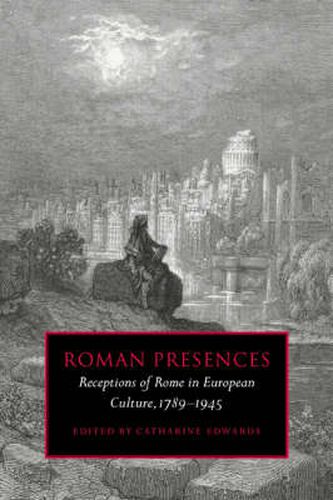Readings Newsletter
Become a Readings Member to make your shopping experience even easier.
Sign in or sign up for free!
You’re not far away from qualifying for FREE standard shipping within Australia
You’ve qualified for FREE standard shipping within Australia
The cart is loading…






This collection of essays explores aspects of the reception of ancient Rome in a number of European countries from the late eighteenth century to the end of the Second World War. Rome has been made to stand for literary authority, republican heroism, imperial power and decline, the Catholic Church, the pleasure of ruins. The studies offered here examine some of the sometimes strange and unexpected places where Roman presences have manifested themselves during this period. Scholars from several disciplines, including English literature and history of art, as well as classics, bring to bear a variety of approaches on a wide range of images and texts, from statues of Napoleon to Freud’s analysis of dreams. Rome’s seemingly boundless capacity for multiple, indeed conflicting, signification has made it an extraordinarily fertile paradigm for making sense of - and also for destabilizing - history, politics, identity, memory and desire.
$9.00 standard shipping within Australia
FREE standard shipping within Australia for orders over $100.00
Express & International shipping calculated at checkout
This collection of essays explores aspects of the reception of ancient Rome in a number of European countries from the late eighteenth century to the end of the Second World War. Rome has been made to stand for literary authority, republican heroism, imperial power and decline, the Catholic Church, the pleasure of ruins. The studies offered here examine some of the sometimes strange and unexpected places where Roman presences have manifested themselves during this period. Scholars from several disciplines, including English literature and history of art, as well as classics, bring to bear a variety of approaches on a wide range of images and texts, from statues of Napoleon to Freud’s analysis of dreams. Rome’s seemingly boundless capacity for multiple, indeed conflicting, signification has made it an extraordinarily fertile paradigm for making sense of - and also for destabilizing - history, politics, identity, memory and desire.